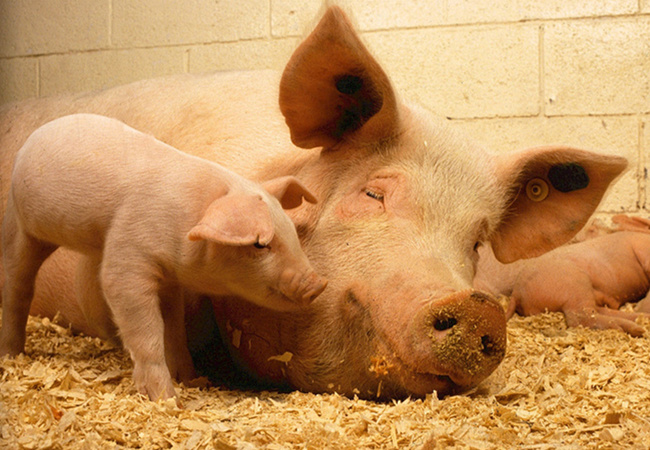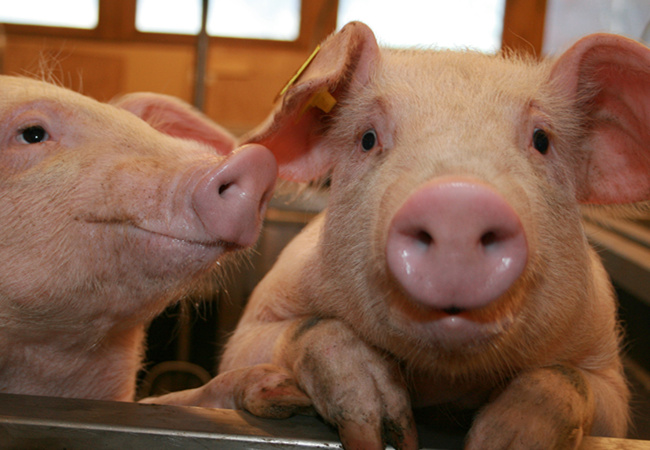Betaine, also known as glycine trimethyl inner salt, is a non-toxic and harmless compound. The appearance is white crystalline powder or granule, molecular formula is C5H12NO2 and molecular weight is 118, and melting point is 293°C. It has light sweet taste and is a substance similar to vitamins. Currently widely used in feed breeding industry, betaine is used as a feed additive to increase pig body weight and improve feed conversion efficiency.
For weaned piglets, supplementation of betaine can improve growth performance, and the effect of adding 600mg/kg betaine is the best. Adding 800mg/kg betaine can improve the digestibility of diet dry matter and crude protein, increase proteolytic enzyme activity, and can also improve lean meat rate, reduce diarrhea rate, can also reduce urea nitrogen and increase serum total iron binding capacity.

The addition of betaine can increase the daily weight gain of growing pigs and reduce the FCR. Betaine has effect to increase the back longissimus muscle and crude fat content of growing pigs, improve the quality of pork.
Adding betaine can increase the lean meat rate and muscle fat content of fattening pigs, reduce the fat rate and backfat thickness, and improve the carcass quality. The reason is that betaine improves the level of intramuscular fatty acids, it may be that the effect of betaine in promoting fatty acid uptake is stronger than the effect of promoting fatty acid oxidation.

Research on primiparous sows found that betaine can increase the number of weaned piglets and weaning litter weight at 21 days of age, shorten the estrus interval within 7 days after weaning to improve reproductive performance.Because betaine acts as a methyl donor, it can reduce the level of homocysteine in sow serum by promoting protein synthesis, thereby promoting embryonic growth and development and improving sow reproductive performance.